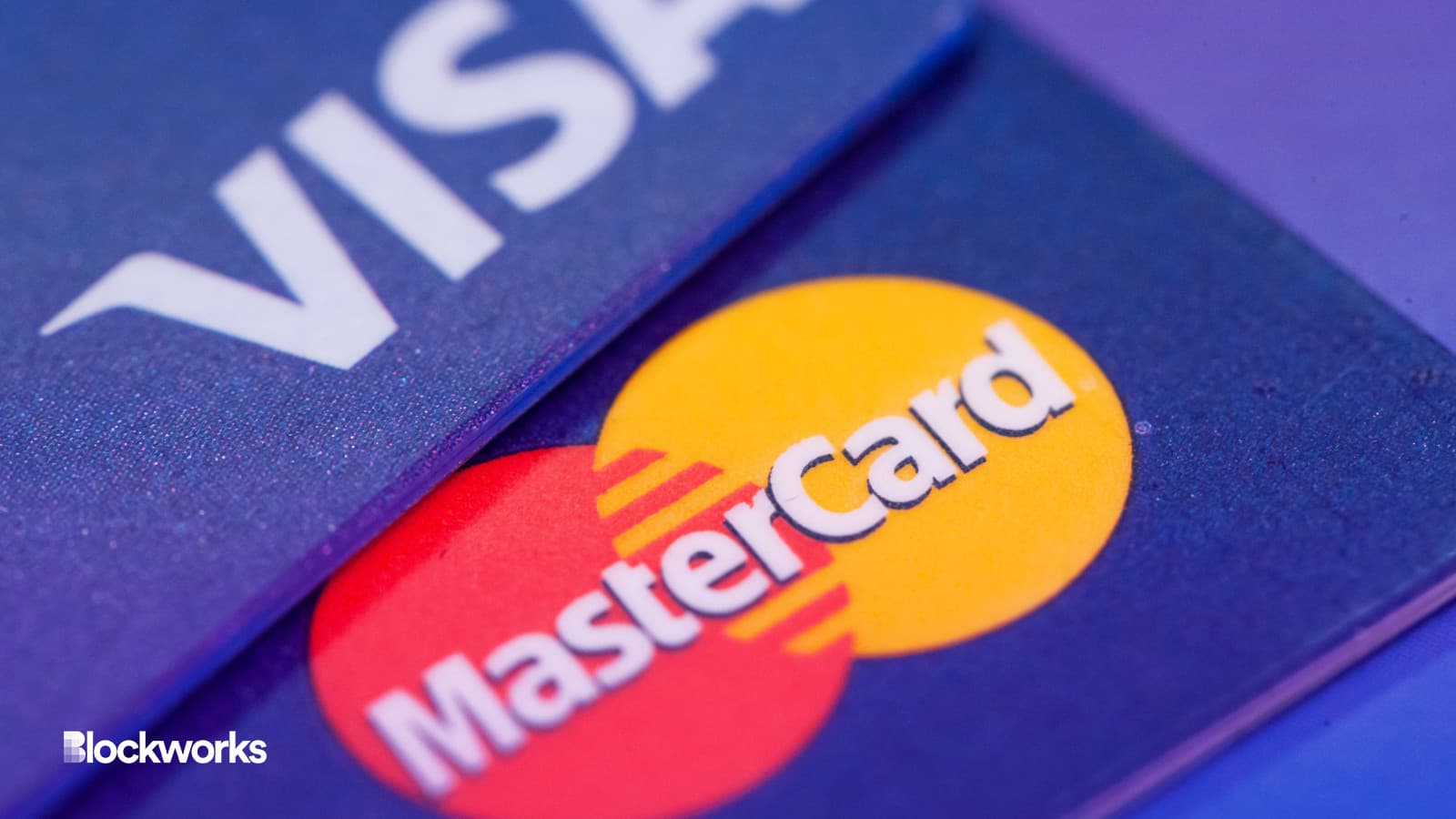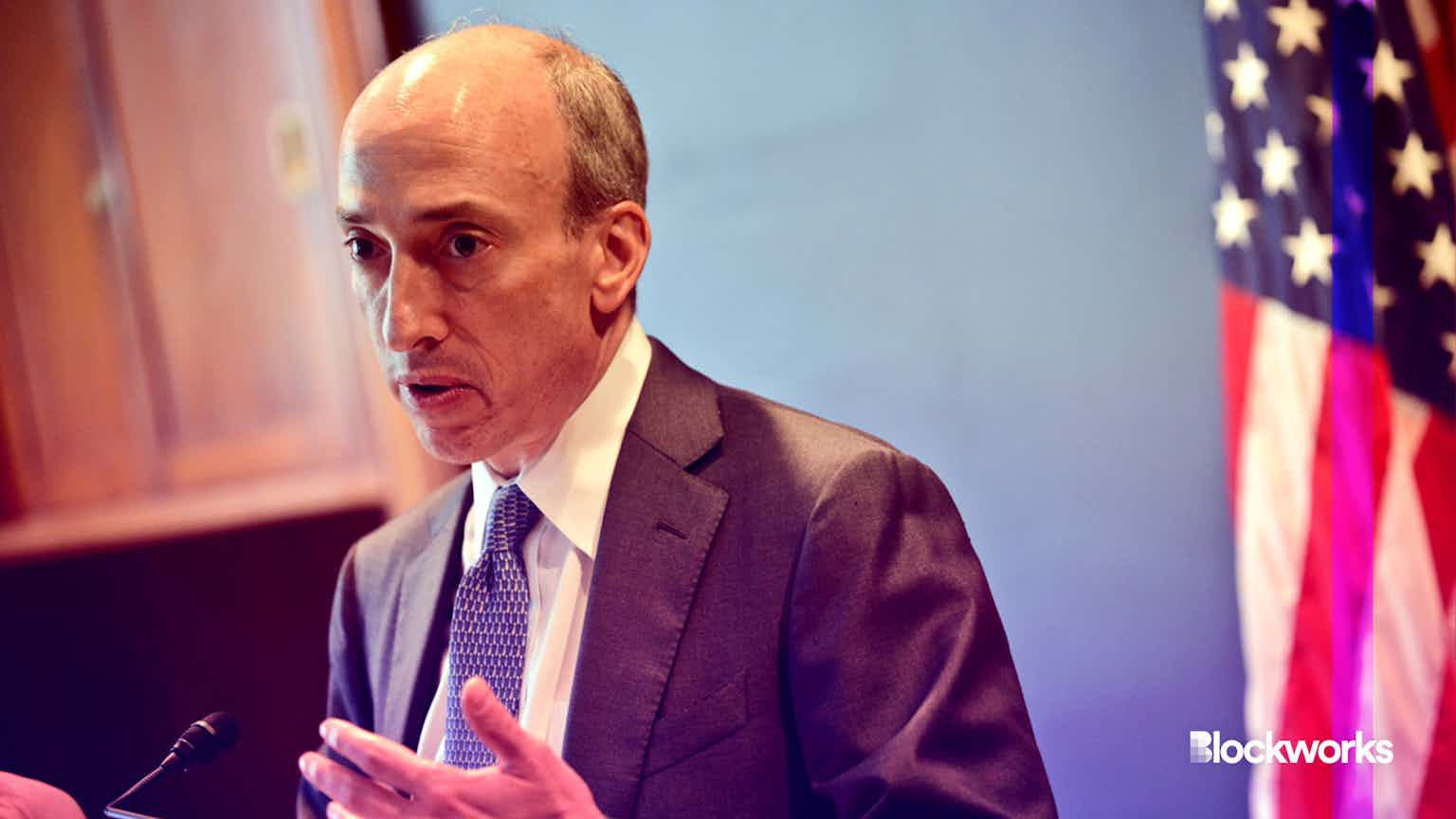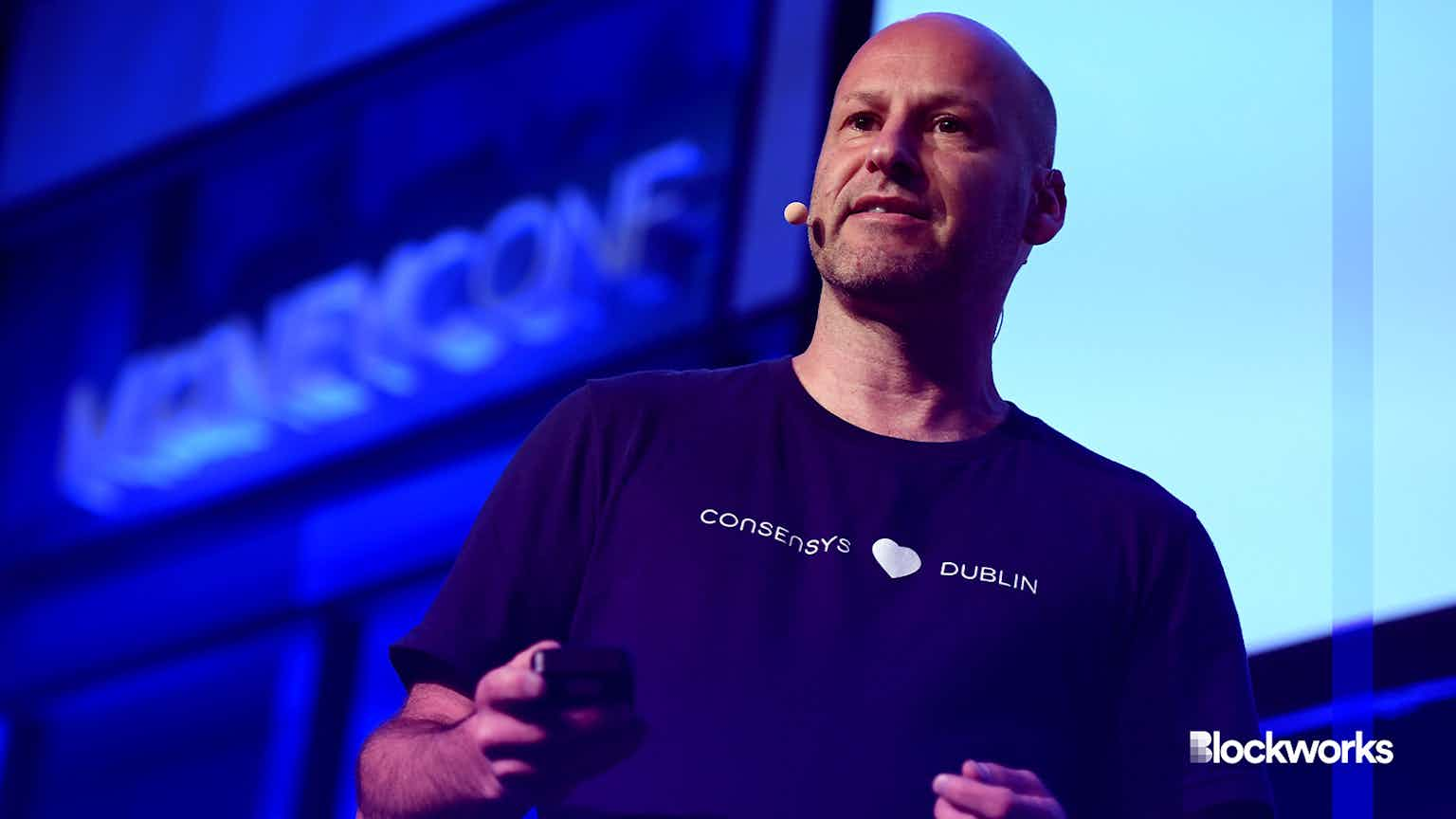Mastercard, Visa Ink Fresh Crypto Debit Cards With Web3 Startups
Despite all the drama, payments giants Mastercard and Visa are still signing new debit card deals with crypto startups around the world

Shutterstock.com/Karolis Kavolelis, modified by Blockworks
The Mastercard and Visa duopoly has been signing fresh debit card partnerships with crypto companies even as government officials butt heads over regulating the industry.
Payments giants stand to gain partnerships with crypto companies as they get access to new sources of revenue. In turn, crypto companies get access to a global payment network.
Some examples of crypto partnerships with the payments giants below show they aren’t holding back on the sector.
Binance
Binance recently launched a prepaid crypto card through a Mastercard partnership in Brazil, allowing local residents to make purchases and pay bills with crypto as long as they hold a national ID.
Binance and Mastercard had already teamed up last year for a prepaid card in Argentina.
Bit2Me
Spain-based Bit2Me last month launched a Mastercard-powered debit card offering 9% cashback to customers. The exchange had already partnered with the payments provider for its original card, which allowed the conversion of crypto into fiat money.
The card so far works with eight cryptocurrencies that can be linked to its wallet, and the exchange intends to add more cryptocurrencies through the year.
Bitso
Latin American exchange Bitso also rolled out a Mastercard debit card in Mexico this month, offering crypto rewards on purchases. The company said over 100,000 users had already signed up to test the product.
Bybit
Dubai-based Bybit this month announced the launch of ByBit Card, which is powered by Mastercard and issued by Moorland. The company said it would provide a free virtual card that can be used for online purchases, while a physical card would be launched in April.
The card is said to be accessible to eligible countries in Europe and the UK, which have necessary KYC and anti-money laundering measures in place.
Gate.io
Lithuania-based Gate Group, the firm behind crypto exchange Gate.io, revealed the launch of a Gate debit card in partnership with Visa.
A waitlist and registration process is available to customers in most countries in the European Economic Area.
Mastercard and Visa say they’re still with crypto
Reuters reported recently that both Mastercard and its competitor Visa are pausing efforts to establish new crypto-related partnerships after a series of bankruptcies in the industry.
Visa quickly denied the report, telling Blockworks it would continue to monitor the crypto industry and pay attention to regulatory developments.
Visa’s job is “to support an array of ways to pay and to study new technologies that may impact the future of payments,” the spokesperson said.
“To that end, we’re focused on growing our core competencies in Web3 infrastructure layers and evaluating the blockchain protocols driving crypto development.”
“Our efforts continue to be focused on the underlying blockchain technology and how that can be applied to help address current pain points and build more efficient systems for consumers and businesses,” a Mastercard spokesperson told Blockworks.
Mastercard initially said it was focused on “the underlying blockchain technology” and how that can help make payment systems more efficient. But in a more recent statement to Blockworks, a spokesperson directly refuted that it was winding down crypto operations.
“[The Reuters article] is inaccurate and does not reflect our activities and plans for this space,” Mastercard said.
“We continue to work with our partners to bring relevant payments solutions and programs to market, guided by Mastercard’s foundational principles in the digital assets and blockchain space – stability, regulatory compliance, and consumer protections.”
Simon Schaber, SpoolDAO’s chief business development officer, broke down the win-win situation between both parties:
“By partnering with crypto companies, Mastercard stands to make a lot of money through fees. When a customer uses a crypto debit card, a small transaction fee is taken out of the customer’s wallet and goes to Mastercard,” he said.
“These fees can be quite substantial, so it’s no wonder that Mastercard is so eager to partner with crypto companies.”
Start your day with top crypto insights from David Canellis and Katherine Ross. Subscribe to the Empire newsletter.





